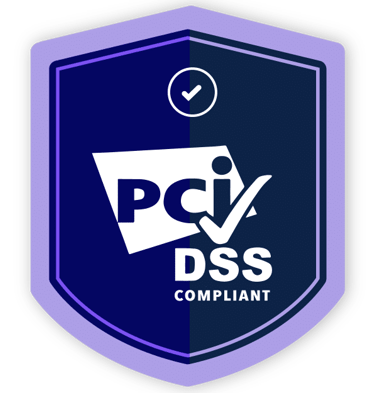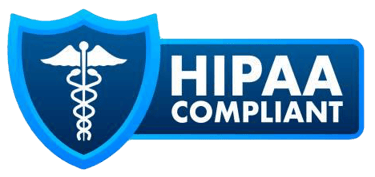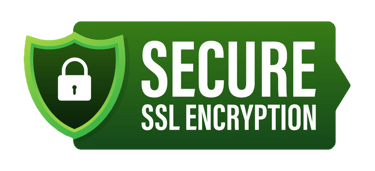Mock Surveys vs. Real Surveys: Why Hospice Agencies Need Both
Learn why hospice agencies need both mock and real surveys to ensure compliance and readiness—HealthBridge Consulting offers expert mock survey services to prepare your team for success.


Hospice agencies operate under strict regulatory oversight, and for good reason. They provide care to some of the most vulnerable populations, often in patients’ homes, where quality and compliance are harder to monitor than in traditional healthcare settings. Because of this, surveys—whether from CMS (Centers for Medicare & Medicaid Services), state agencies, or accrediting bodies—play a vital role in ensuring that agencies meet the Conditions of Participation (CoPs).
But while real surveys are required and often intimidating, agencies that rely only on them are putting themselves at risk. Mock surveys are the proactive counterpart, giving hospice teams a safe environment to identify problems, train staff, and strengthen compliance before regulators arrive. When used together, mock and real surveys create a complete readiness system that safeguards agencies against deficiencies while elevating the quality of care.
What Happens During a Real Survey?
Real surveys are conducted by regulatory bodies and are typically unannounced. They are detailed, multi-day reviews that involve:
Chart audits: Surveyors evaluate patient records for eligibility, documentation, and alignment with Local Coverage Determinations (LCDs).
Staff interviews: Nurses, aides, and even office staff may be asked direct questions about policies, infection control, or patient care.
Policy and procedure review: Outdated or missing policies are a common deficiency.
Home visits: Surveyors may accompany staff on visits to observe care in real time.
QAPI evaluation: Agencies must show ongoing performance improvement backed by measurable data.
If surveyors find deficiencies, agencies may face corrective action plans, fines, or termination from the Medicare program. In extreme cases, deficiencies can lead to closures.
This is why “waiting for the survey” to prepare is dangerous. By the time a deficiency is discovered during a real survey, it’s too late to avoid consequences.
Why Mock Surveys Matter
Mock surveys are essentially “practice runs” designed to mirror the conditions of a real survey without the high stakes. They can be performed internally by compliance staff, but the most effective approach is to use an external consultant who brings objectivity and knowledge of the latest survey trends.
Mock surveys help hospice agencies by:
Uncovering Documentation Weaknesses
For example, a nurse’s note may describe patient decline but fail to connect it explicitly to LCD criteria. A mock survey flags this before it becomes a deficiency.Training Staff for Interviews
Many staff members freeze when asked surveyor-style questions. Mock surveys prepare them to answer confidently and accurately.Identifying Policy Gaps
Consultants often find outdated policies (e.g., infection control plans that don’t address COVID-19 updates) that agencies overlook.Reinforcing Daily Readiness
Mock surveys build habits—like proper hand hygiene documentation or clear medication reconciliation—that become second nature over time.
At HealthBridge Consulting, we offer hospice mock surveys designed to be as close to the real thing as possible. Our team doesn’t just point out problems—we provide immediate solutions, action plans, and education so agencies can implement changes right away.
The Relationship Between Mock and Real Surveys
Some agencies wonder, “If we pass a real survey, do we still need mock surveys?” The answer is yes. Here’s why both are necessary:
Real Surveys = Regulatory Requirement
These validate compliance and determine whether your agency keeps its certification. They are mandatory and carry real consequences.Mock Surveys = Preventive Training Tool
These give you a chance to prepare, improve, and build confidence without penalties. They create a continuous improvement loop that feeds directly into better performance during real surveys.
Think of it like sports: the mock survey is practice, and the real survey is game day. Teams that only play on game day without practicing are far more likely to lose.
Common Deficiencies Found in Surveys
Mock surveys are especially valuable because they target the same problem areas that real surveyors often identify. Common deficiencies include:
Incomplete or vague documentation (e.g., “patient comfortable” without describing objective indicators).
Failure to demonstrate eligibility tied to LCDs or prognosis.
Inadequate infection control practices.
Poor coordination in Interdisciplinary Team (IDT) meetings.
Outdated policies or missing staff training records.
By addressing these issues in advance, agencies dramatically reduce their chances of receiving deficiencies during a real survey.
Best Practices for Using Both Surveys
To maximize the benefit of both mock and real surveys, agencies should:
Schedule Mock Surveys Regularly
At least once a year, and more often if new staff or compliance issues are present.Use External Consultants
Objective reviewers, like HealthBridge Consulting, spot issues internal staff may miss due to routine blind spots.Integrate Mock Survey Findings into QAPI
Every deficiency found in a mock survey should translate into measurable performance improvement projects.Educate Continuously
Don’t wait for the survey to train staff. Use findings as teaching moments during in-services and team meetings.Adopt a “Survey-Ready Always” Culture
Teach staff to assume that every visit, every note, and every day could be the day a surveyor arrives.
Hospice agencies face a dual challenge: providing compassionate, high-quality care while staying compliant with rigorous regulations. Real surveys are unavoidable and can make or break an agency’s future. Mock surveys, on the other hand, are powerful tools for preparation, training, and improvement.
Together, they create a system of accountability and readiness that ensures agencies are never caught off guard. By investing in both, hospices protect not only their certification but also their reputation, financial stability, and most importantly—the well-being of their patients.
At HealthBridge Consulting, we specialize in conducting mock surveys tailored to hospice agencies. Our process identifies gaps, trains staff, and provides action plans so that when real surveyors arrive, your team is ready.
If your hospice is preparing for an upcoming survey—or simply wants the peace of mind that comes with readiness—reach out to HealthBridge Consulting for expert support.







